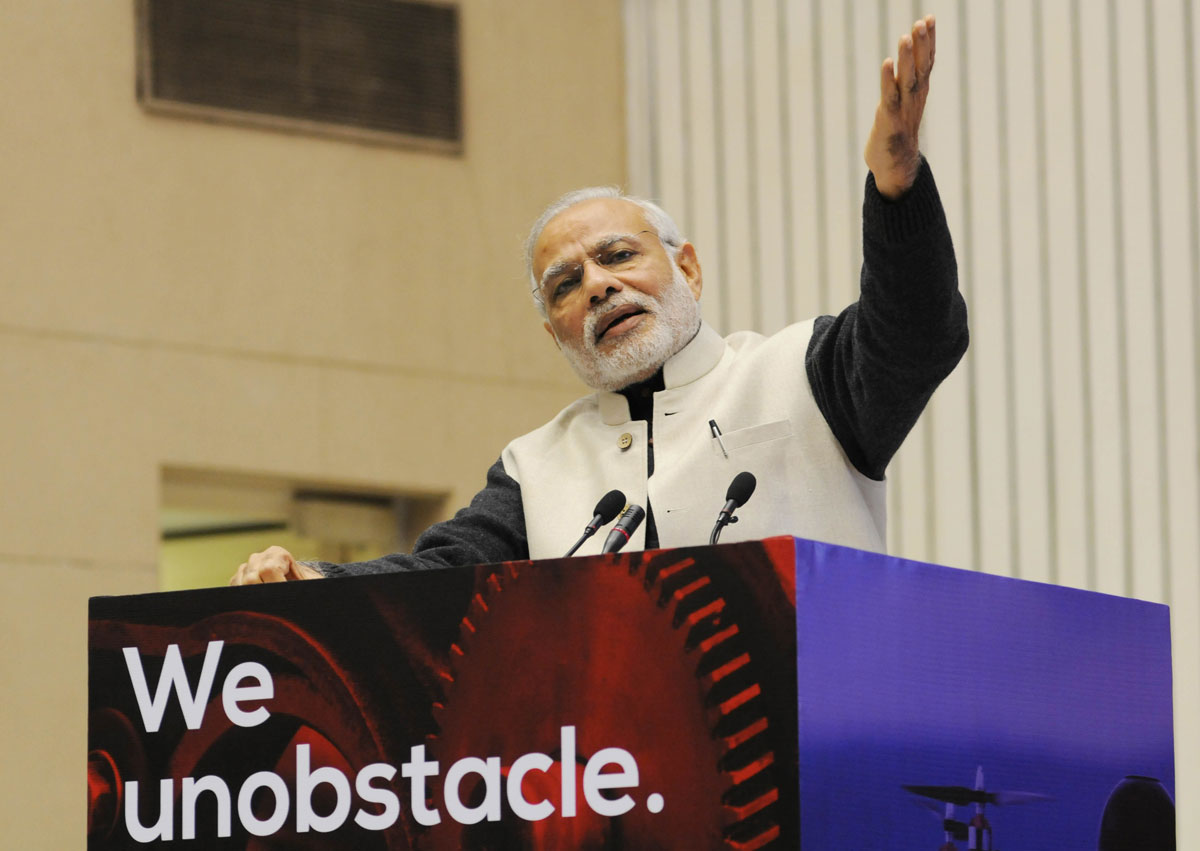India Tweaks Start-up Definition, Benefits to Now Flow for 7 Years
File photo of Prime Minister Narendra Modi speaking at an event to launch an initiative to bolster start-ups in New Delhi, January 16, 2016. Indian entrepreneurs will receive generous tax breaks and face dramatically reduced red tape when starting and closing a business, Prime Minister Narendra Modi said, as he launched a pet initiative to bolster India’s fast-growing startup scene. Speaking at a gathering of 2,000 entrepreneurs from India, Silicon Valley and elsewhere, Modi outlined a slew of measures under Start Up India including exempting startups from income tax for their first three years. (AFP/Getty Images)
@Siliconeer #Siliconeer #India #StartupIndia #NarendraModi @TiESV #TiESV #IndianAmerican – The Indian government has introduced minor changes to the start-up definition, saying a business not older than seven years will now qualify for benefits under the Startup India Action Plan.
So far, only companies up to five years from the date of incorporation were eligible for concessions under the plan announced last year.
As per the new definition, an entity shall be considered as a start-up if its turnover is less than Rs. 25 crores—which remains unchanged—and has not completed seven years from the date of its incorporation/registration.
However, in the case of startups in the biotechnology sector, the period shall be up to 10 years, the commerce and industry ministry said in a notification.
It also said that an entity shall be considered as a startup if it is working towards innovation, development or improvement of products or processes or services, or if it is a scalable business model with a high potential of employment generation or wealth creation.
It added that an entity shall cease to be a startup on completion of seven years from the date of its incorporation/registration or if its turnover for any previous year exceeds Rs. 25 crores.
To obtain tax benefits, it said, a startup should obtain a certificate of an eligible business from an inter- ministerial board of certification as constituted by the Department of Industrial Policy and Promotion.
It said if the recognition would be obtained without uploading the relevant documents or on the basis of false information, the DIPP reserves the right to revoke the recognition certificate and certificate of an eligible business for tax benefits immediately without any prior notice or reason.
Further, the notification said the process of recognition as a startup would be through an online application made over the mobile app/portal set up by the DIPP.
The definition is important for budding enterprises to avail government-sponsored venture funding and tax and other benefits.
Certain sections of startups had criticized the old definition saying defining such firms as those that are less than five years old was restrictive.
Meanwhile, the commerce ministry in a statement said, an entity shall be considered as a startup up to seven years from the date of its incorporation or registration from earlier 5 years taking into account the long gestation period for such entities to establish.
No letter of recommendation from an incubator/industry association shall be required for either recognition or tax benefits, it said.
The statement further said that the scope of definition has been broadened to include scalability of business model with potential of employment generation or wealth creation.
“The above changes are an effort to ensure ease of starting up new businesses to promote the startup ecosystem and build a nation of job creators instead of job seekers,” it said.


